This Chicago Couple Turns Vacant Lots into Flower Farms, Employs Local Youth as Florists: 'There's Hope'
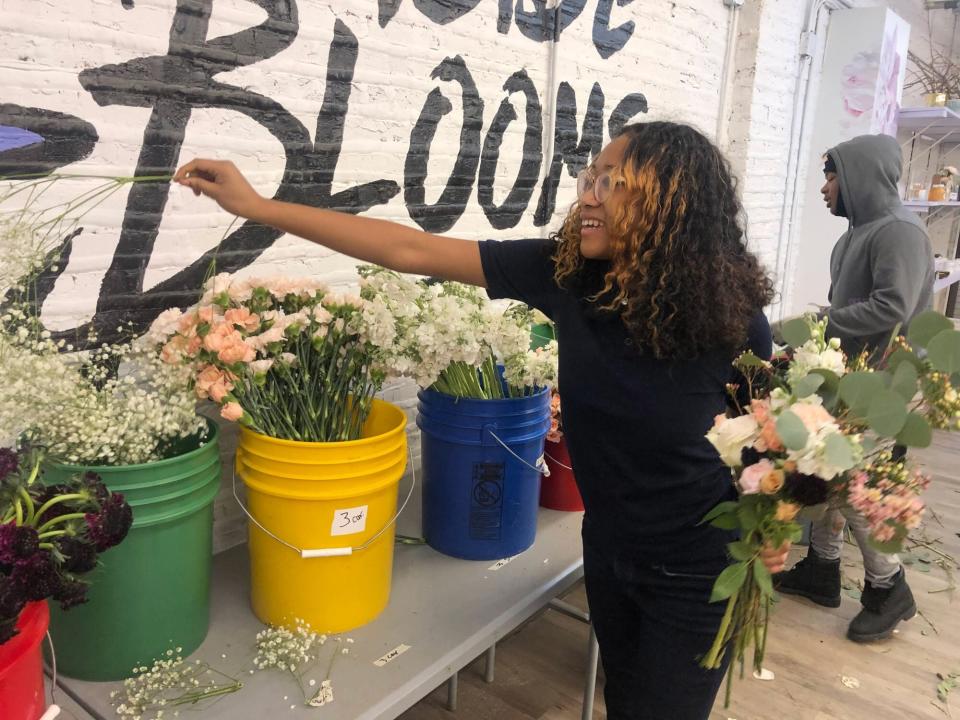
Southside Blooms
Quilen Blackwell wants to fill the inner city with flowers.
His non-profit, Southside Blooms, is currently farming 10 acres that were once vacant lots in Chicago, and are now solar powered, ultra-organic flower farms. He hires at-risk inner city youth to work at the non-profit's farm-to-vase florist, helping create jobs and beautifying communities.
"Things were very dire," he says. "Now there's hope."
In addition to four flower farms in Chicagoland, they have a pilot program in Detroit and a partnership in Gary, Indiana — and Blackwell hopes to replicate the initiative's success in cities across the country.
"We really want to be able to grow as much as possible and as fast as possible, so that inner cities of America can change," he says. "This is about eliminating the ghetto as we know it."
The flower farms each have "pocket parks," creating usable green space for children's birthday parties, neighborhood barbecues and concerts. The social enterprise business model the non-profit applies to the flower shop gives kids a safe place to go after school, a way to earn money, and teaches marketable skills. Not to mention, it creates a beautiful environment wherever it's planted.
For more on this story, listen below to our daily podcast PEOPLE Every Day.
"Could you imagine driving on the South Side of Chicago and seeing flower farms everywhere? Just like if you're driving in Napa Valley, you see beautiful vineyards everywhere," Blackwell says. "That's definitely our dream, and we think it's possible."
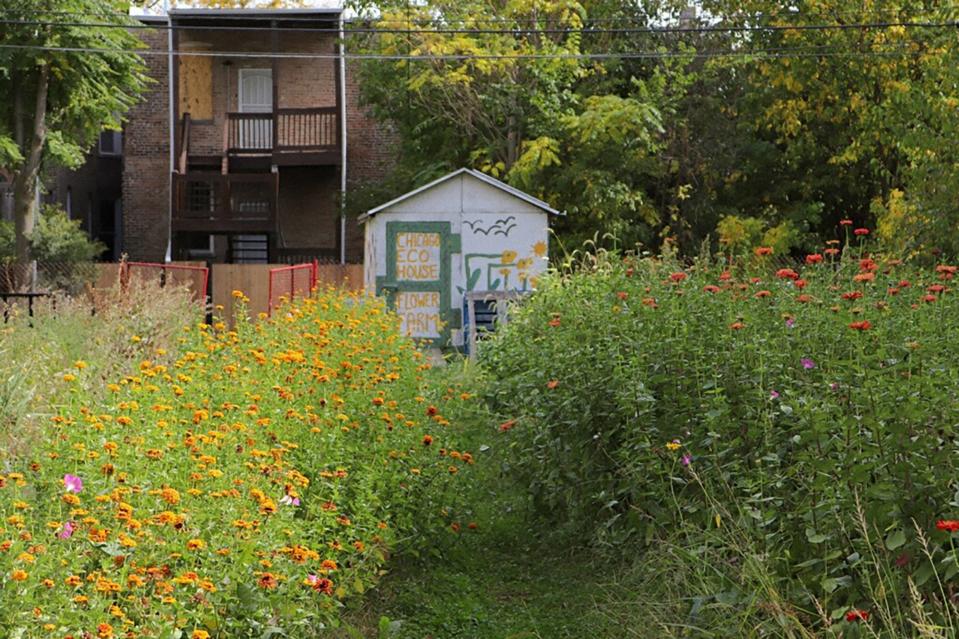
Southside Blooms
The grandson of an Arkansas sharecropper, 38-year-old Blackwell was raised in a middle class family in Madison, Wisconsin. He started working as a community organizer when he was 16. He served two years in the Peace Corps in Thailand, and moved to Chicago in 2011 to attend ministry school.
In 2013, he started volunteering, tutoring high school students on Chicago's South Side.
"For me, that was my first time really coming face-to-face with really hardcore urban poverty in the Black community," he says. "I felt like I could have been any one of these kids."
The students he met, he says, were "super talented and very smart," they just "lacked the opportunities I had growing up."
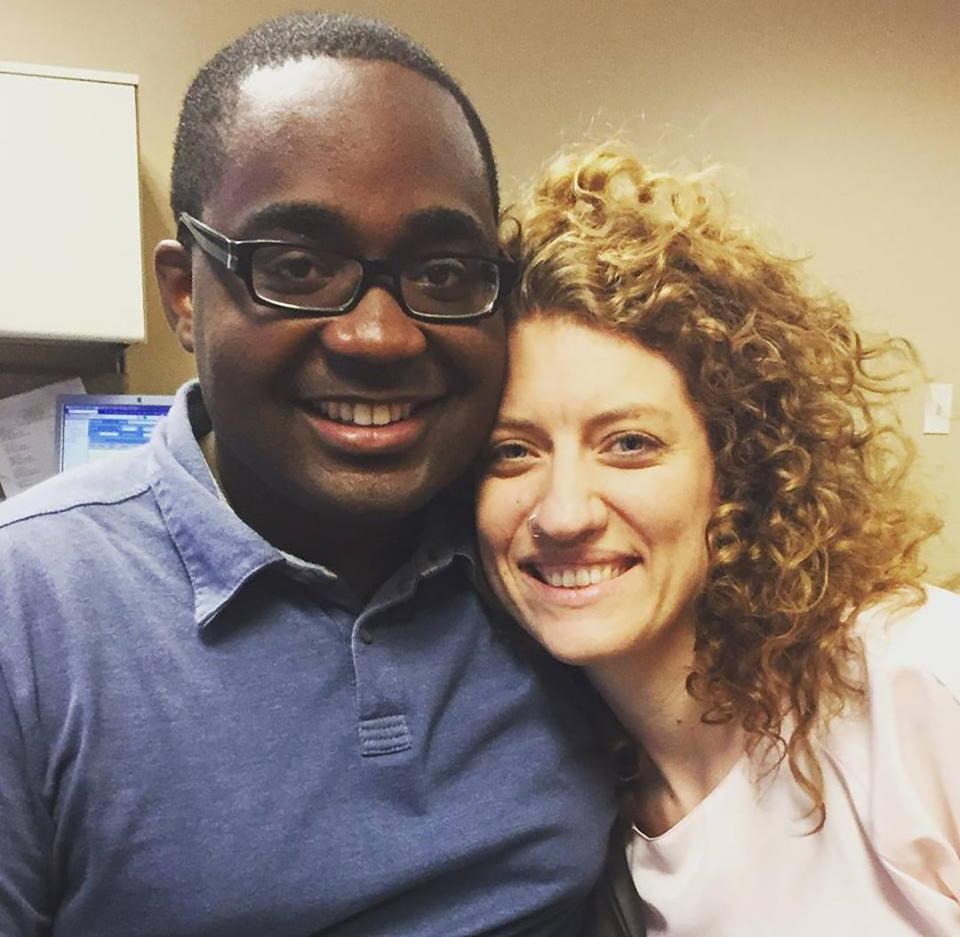
Southside Blooms
In 2014, he and his now-wife Hannah Bonham Blackwell founded the non-profit Chicago Eco House. The couple started with a $150 donation from a friend, bought a greystone home in Englewood for $17,000, rehabbed it, and in 2016 started an after-school program for children K-8. They started farming in their backyard and, in 2017, they bought two vacant lots on the block, launching their first foray into commercial, solar-powered flower farming.
"We wanted to really do something that not only help the youth, but that would actually physically transform the environment that they're living in, because it can't be separated," Blackwell says.
At first, the non-profit sold flowers wholesale to local florist. Then in 2019, the couple launched their in-house social enterprise flower shop, Southside Blooms.
"We are teaching a really great skill," says co-founder and head florist, Hannah Bonham Blackwell, 40. "We are giving them something of beauty to work with."
Hannah Bonham Blackwell, who grew up in Newton, Kansas, attended both bible school and beauty school, working as both a hairdresser and a youth minister before co-founding the non-profit. She retrained as a florist (noting that arranging flowers is much like creating an updo!) and now strives to encourage and uplift the youth she works with.
"We started something that could launch somebody into something really amazing," says Hannah Bonham Blackwell. "It's all about setting them up for success, bringing them out of stuff that may not be great, into something really wonderful."
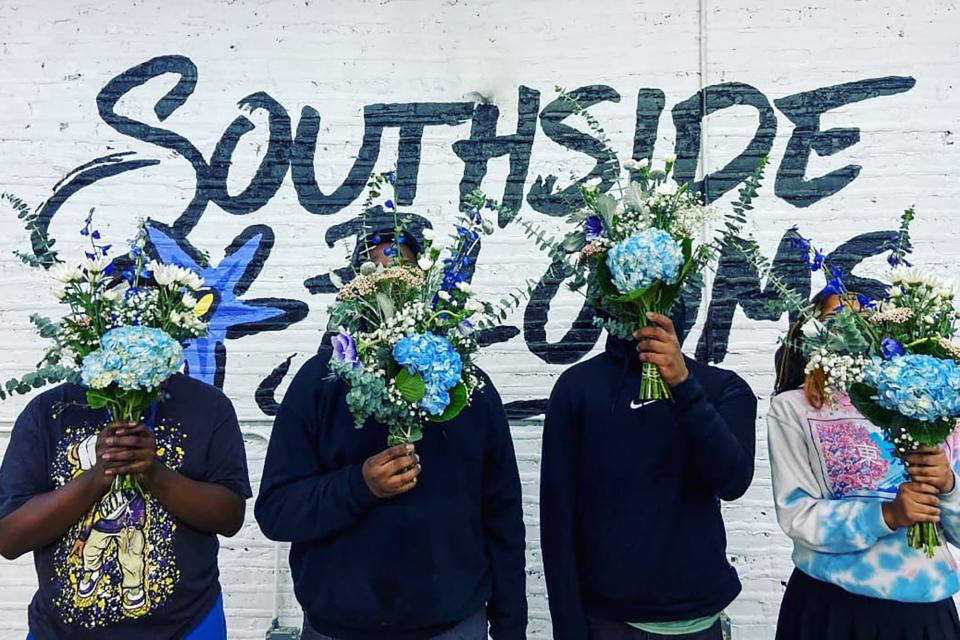
Southside Blooms
In addition to the four farms in Chicago (located in Englewood, Woodlawn, West Garfield Park, and Washington Park), the couple also still operates their after-school program that works with 400 elementary and middle school children each year, teaching lessons about gardening and cooking healthy meals.
The flower farms have beehives, so they also sell raw honey and candles. They offer homemade seed paper greeting cards, made from recycled, shredded paper from local schools. They try to be eco-friendly, from collecting rainwater for the farm to upcycling unread South Side Weekly newspapers to wrap bouquets, and they piloted a subscription program to deliver monthly bouquets throughout the Chicagoland area.
Blackwell says that, as fun as the work is, it's got a very serious purpose behind it.
"This is definitely a matter of life and death," he says. "Chicago has thousands of shootings every year. It's a very violent place. It's a very, very violent area that we're in."
The flower shop gives kids a safe place to go; they currently have 15 employees, ages 15 to 26.
"A lot of these kids were out in the streets or in gangs. You see them basically sitting on the street with guns and stuff, now they're in the flower shop with shears and they're making centerpieces and corsages and boutonnieres. That's a glimpse of what the future could be — not just for Chicago, but pretty much every major city," Blackwell says. "It really does warm my heart when I go in the flower shop and see kids making 70 bouquets for a wedding. I think, "Man, what if this wasn't here?'"
Without it, he says, "They wouldn't be able to shine. Some of them may have been lost to the streets or in jail."
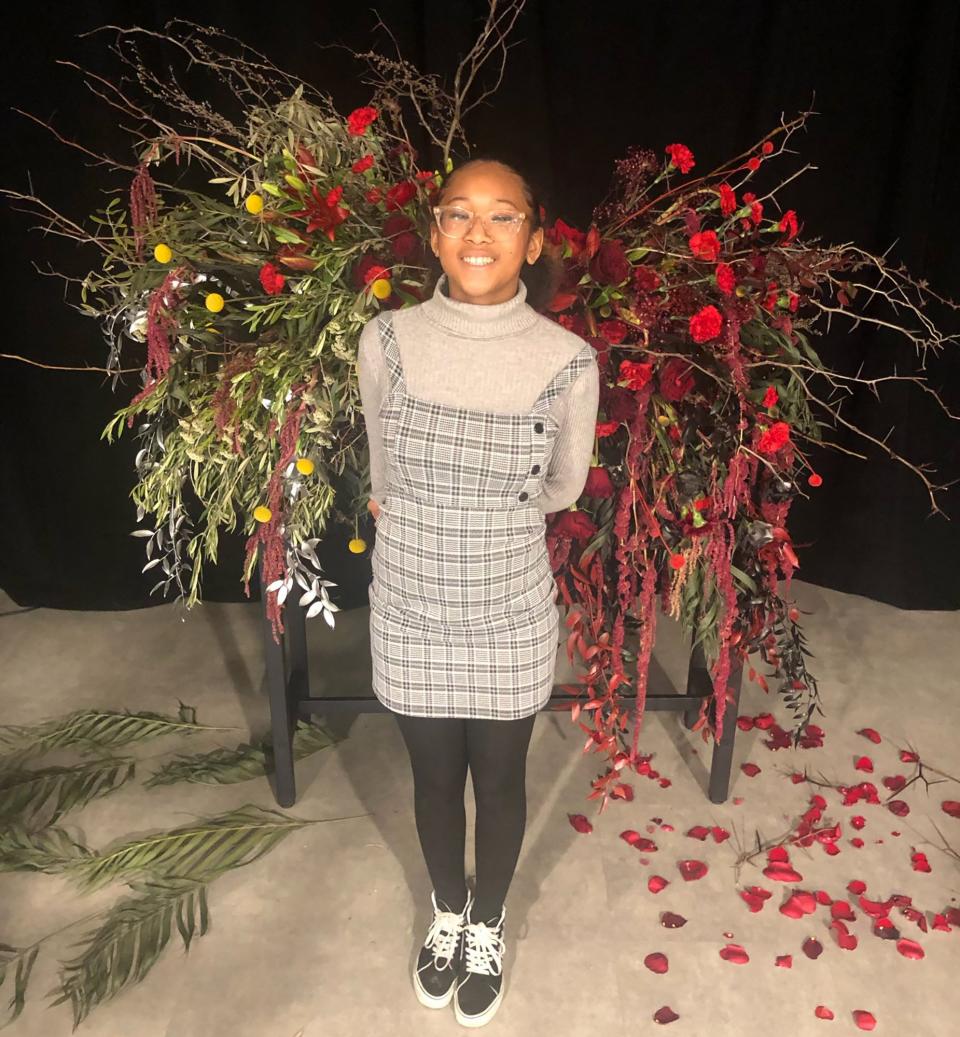
Southside Blooms
Armani Hopkins, 15, lives on Chicago's South Side and has worked for the flower shop for about a year. She loves creating big projects, like wedding flowers. "It's almost an art," says the teen, who hopes to be a microbiologist or pathologist someday.
She says the shop has given her confidence, bolstered her self-esteem and taught her that she can do big things.
"We're doing a lot of good things for this community," Armani told PEOPLE. "I feel like sometimes, especially on the South Side, there is so much darkness. It's important to have something positive. I feel like giving somebody a bouquet can really light up somebody's day."
She says she has family members who "have been involved in certain gang activities ... I have family members who have gotten shot."
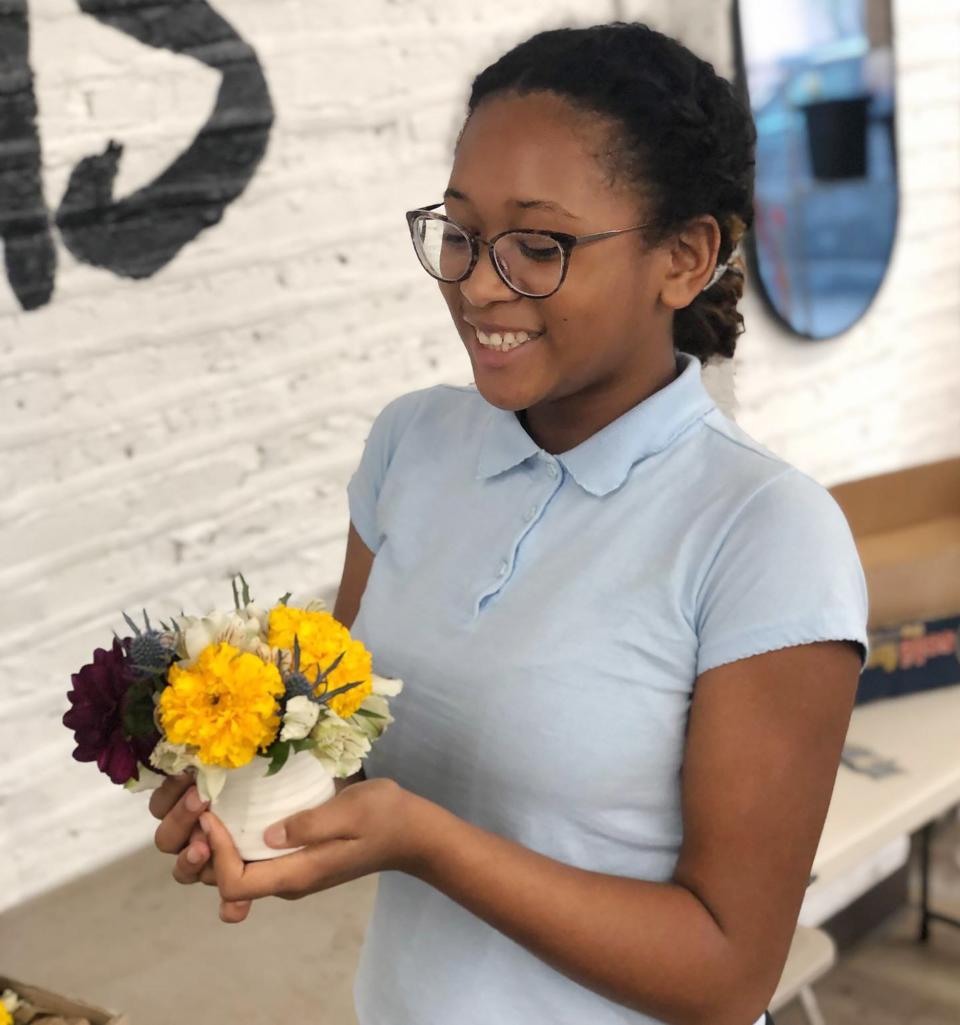
Southside Blooms
"To me, it's important to focus on good things when there's so much negativity going around, dealing with people in my family and stuff. It feels nice that I can start, even just by a little bit, having some type of positive impact," she says. "I feel like I can do a good thing with this job. There are some bright and smart people — including me — in South Side."

 Yahoo Finance
Yahoo Finance 